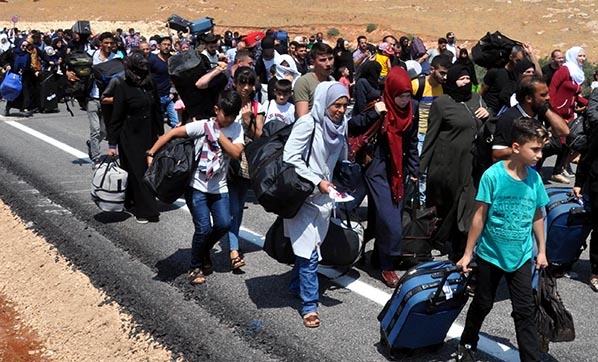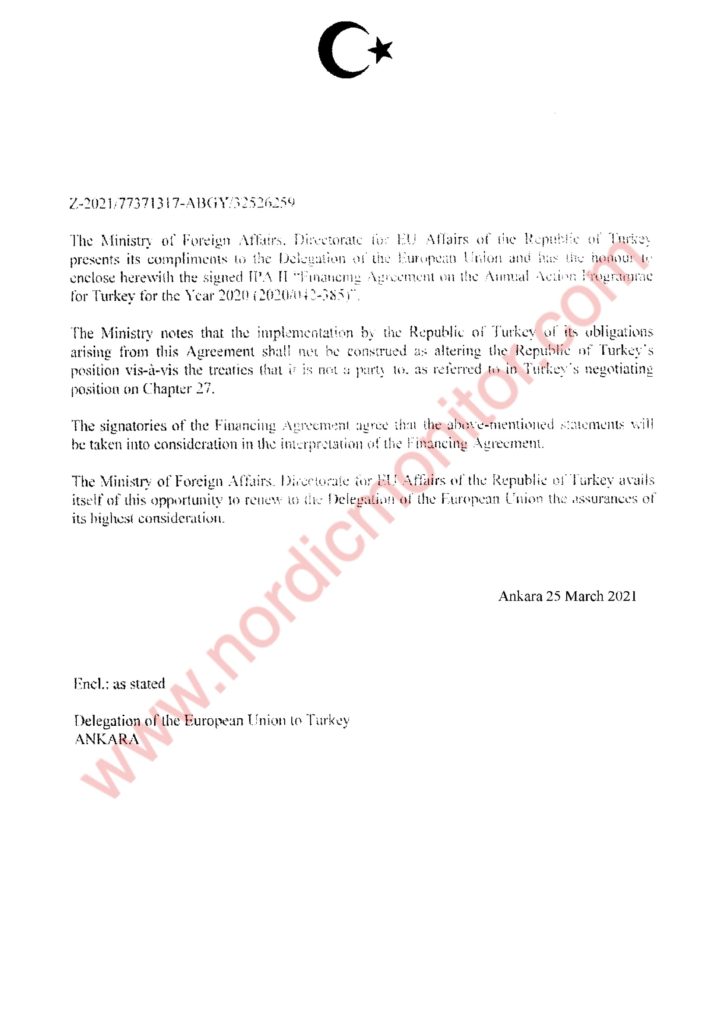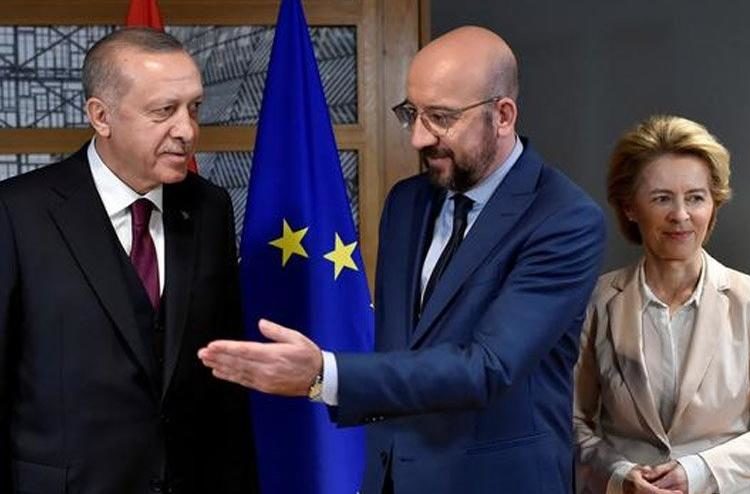Levent Kenez/Stockholm
Turkish President Recep Tayyip Erdoğan ratified a new financing agreement for the Annual Action Programme between Turkey and the EU on April 27, 2021, promising once again to keep refugees in its territory, home to the world’s largest refugee population.
The proposed Annual Action Programme signed in March 2021 mainly targets “democracy and governance” and “rule of law and fundamental rights.” The EU will provide some 122 million euros to support Turkey’s participation in EU programmes and agencies as well as support for implementing the Jean Monnet Scholarship Programme, which provides educational opportunities to Turkish scholars in EU member countries. It is the longest-running project between the EU and Turkey.
The text and size of the agreement look almost like a reproduction of the previous ones. This year’s agreement includes soft language calling for Turkey to abide by its obligations as regards fundamental rights and freedoms when compared to previous years’ texts that warned Turkey about severe human rights violations following a coup attempt in 2016. It appears EU authorities once again decided not to play hardball with Turkey, which would have resulted in damaging economic ties. Instead, the EU wants to continue to deal with Turkey primarily on migration and trade issues, giving Erdoğan wide berth at home for his authoritarian agenda.
The financing agreement reminds Turkey of the implementation of the EU-Turkey statement in 2016 in which Turkey agreed to accept almost all the migrants crossing from Turkey into Greece and to take back all irregular migrants intercepted in Turkish waters. The agreement urges Turkey to make the asylum process easier for Syrians who are in temporary protection status in the country. The EU promises 5.2 million euros to improve Turkey’s institutional capacity regarding border control, visas, external migration and asylum issues.
On the eve of the new migrant deal with Turkey, EU leaders have been harshly criticized by human rights defenders who claim that they are turning a blind eye to human rights violations in exchange for Turkey’s efforts to keep refugees in its territory. It is believed that money had a major impact on Turkey abiding by its obligations in the 2016 migrant agreement. EU leaders claim that it worked well given the fact that 80 percent of young Syrians in Turkey say they want to stay; 700,000 Syrian children go to school in Turkey; and irregular crossings have dropped. However, the weak lira and high inflation during the pandemic may change most Syrians’ attitude about staying if Turkey no longer offers them any job opportunities. Indeed, most of them are underpaid and seen as cheap labor in Turkey.

In December 2020 the EU announced that the European Commission had concluded the final contracts under the operational €6 billion budget of the Facility for Refugees in Turkey. President Erdoğan has been accusing the EU of not fulfilling its promises and repeatedly says the EU has not delivered the money guaranteed under the 2016 program. After getting angry with the EU’s reaction to Turkey’s unilateral military intervention in Syria in February 2020, Erdoğan said Turkey would not prevent migrants from leaving for the EU but later backed off his threat.
The most interesting part of the agreement is no doubt the Action 5 section, which promises some 4 million euros for town twinning between Turkey and the EU. It aims at enabling exchange and cooperation between Turkish municipalities and their EU counterparts on climate and environment-based actions. Turkey’s Interior Ministry launched an investigation on April 30 into 29 municipalities, the majority of them run by the ruling Justice and Development Party (AKP), on suspicion that they helped Turks enter Europe under false pretenses, using official gray passports, also known as service passports, which provide visa-free entry to various countries and can be issued in Turkey for people on official assignment, while municipalities can also request a gray passport for anyone who takes part in any official trip. The Turkish media reported that most of the people who joined the municipalities’ so-called trips for education and environment did not return to Turkey and sought asylum in EU countries. It was also learned that two Turkish diplomats in Germany who reported to Ankara about the misuse of service passports and warned of migrant smuggling involving official authorities were dismissed. The Interior Ministry announced the temporary suspension of the issuance of service passports to people who are not civil servants.













